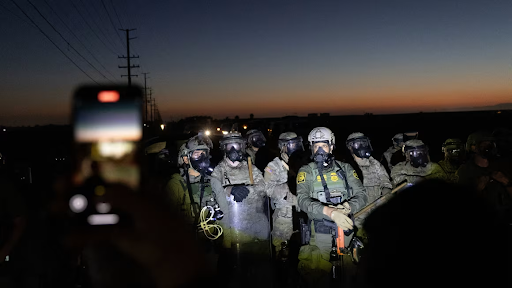Summary Bullet Points
- U.S. Judge Frimpong’s order restricts ICE from making arrests without reasonable suspicion.
- Federal judge Maame Ewusi-Mensah Frimpong bans profiling-based immigration stops.
- District Court Judge Frimpong’s decision secures legal counsel access for detainees.
- Immigration ruling by Judge Frimpong supports ACLU-backed lawsuit in Los Angeles.
- Judge Maame E. Frimpong's action highlights Fourth Amendment protections for immigrants.
U.S. Judge Frimpong’s order blocks racially biased immigration arrests
On July 11, 2025, Judge Maame Ewusi-Mensah Frimpong issued a forceful legal order halting certain immigration enforcement actions in Southern California. The temporary restraining orders prevent federal immigration agents and the Donald Trump administration from arresting individuals without reasonable suspicion of an immigration law violation.
This legal move, triggered by a lawsuit from the ACLU and Public Counsel, directly challenges the constitutionality of broad-based ICE operations that immigrant advocates argue rely heavily on racial profiling and location-based targeting.
Federal judge Maame Ewusi-Mensah Frimpong bans profiling in ICE patrols
A central component of Judge Maame Ewusi-Mensah Frimpong’s ruling is the prohibition of detentions based on general characteristics like:
- Race or skin tone
- Accented English or primary language
- Occupation (e.g., day laborers)
- Location (such as bus stops or parking lots)
These broad-based indicators, the judge emphasised, do not meet the legal threshold for reasonable suspicion or probable cause, thus violating constitutional protections under the Fourth Amendment.
The decision directly targets so-called “roving patrols” used by immigration officers to stop individuals in public spaces based on appearance or assumptions.
District Court Judge Frimpong’s decision expands detainee rights
Beyond curbing enforcement practices, District Judge Maame Ewusi-Mensah Frimpong also introduced new standards ensuring access to legal representation for detained individuals. The ruling now requires that detainees:
- Receive access to lawyers seven days a week
- Be allowed to make confidential phone calls without government monitoring or recording
- Be informed of their rights at the time of detention
These changes reflect growing concern that immigration detention practices often prevent fair legal counsel, making it nearly impossible for detainees to defend themselves effectively.
Immigration ruling by Judge Frimpong strengthens ACLU lawsuit
The court ruling is a major milestone for the lawsuit spearheaded by Public Counsel and the ACLU, who represented multiple immigrants detained without warrants. In her 52-page opinion, Judge Maame Ewusi-Mensah Frimpong criticised the government's defence as “overbroad and unsupported,” siding with plaintiffs who claimed their constitutional rights were violated.
The judge stated that the plaintiffs are “likely to succeed on the merits” when the case proceeds to trial, a strong indication of the court’s scepticism toward current enforcement tactics.
Judge Maame E. Frimpong's action underscores constitutional limits
With this landmark ruling, Judge Maame E. Frimpong draws a clear line in the sand regarding immigration enforcement. Her order serves as a reminder that no federal agency is above the Constitution, even amid efforts to tighten border control and increase deportations.
While federal officials have expressed disagreement, the decision puts a spotlight on the balance between national enforcement goals and individual rights. It also offers a blueprint for other courts to follow when dealing with similar claims of profiling and warrantless stops.
Stay informed as this case heads to trial—subscribe for real-time updates on immigration law, federal court rulings, and civil rights protections.




Social Plugin